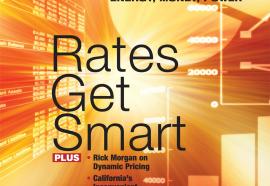The Trouble with Freeriders
The debate about freeridership in energy efficiency isn’t wrong, but it is wrongheaded.
In any conservation or efficiency program, some market participants will reap benefits without paying their share of the costs—i.e., the “freerider” problem. Some freeriders are unavoidable and generally not a problem. But as Cadmus Group analysts Hossein Haeri and M. Sami Khawaja explain, avoiding excessive freeridership requires careful program structuring, as well as ongoing measurement to accurately evaluate outcomes.



